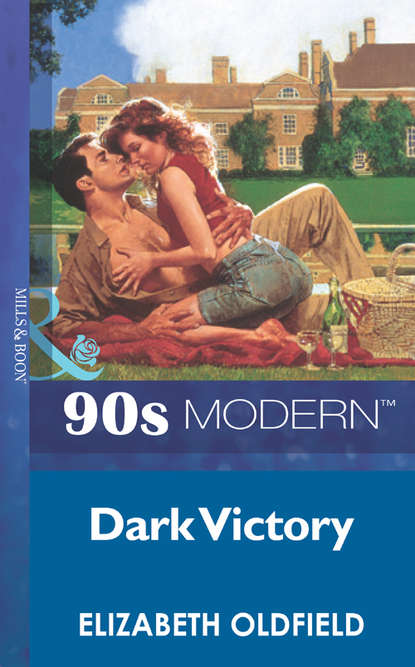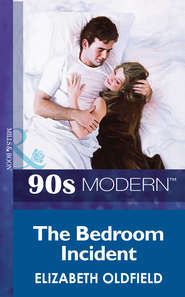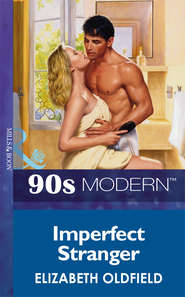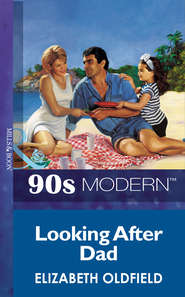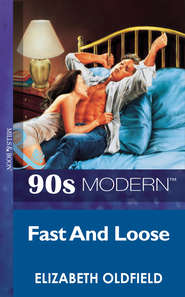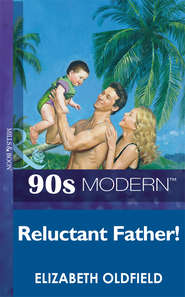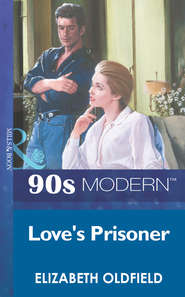По всем вопросам обращайтесь на: info@litportal.ru
(©) 2003-2024.
✖
Dark Victory
Автор
Год написания книги
2018
Настройки чтения
Размер шрифта
Высота строк
Поля
‘Almost, and I was abroad for a two-year stint prior to that. In the olden days, oast-houses were where the hops used to be dried, she went on. ‘Hops are dried flowers which give a bitter taste to—’
‘Beer. You don’t need to explain, he said. I went to university in Sussex.’
Cheska cast him a surprised glance. ‘I’d realised from your English that you’d probably lived in England at some time, but I had no idea it was in this part of the country. Being a student and then returning to film in the area is quite a coincidence.’ she observed.
Lawson looked straight ahead. ‘Isn’t it?’
Even though he had studied here, for him to have become so fluent and to have lost almost all trace of an accent meant that he must have a natural flair for languages, Cheska reflected, as they walked on. But Lawson Giordano seemed to have a flair for many things—not least lovemaking. Raising her eyes, she watched a pack of black swifts streak across the sky. For years she had obliterated all thoughts of the night they had spent together, and she was not going to resurrect any memories now. ‘ What’s the oast like?’ Cheska asked.
‘There are stone walls, oak beams and thick white carpets. It comes with all mod cons and is very comfortable. Whoever rents it will be delighted, especially as I believe they’re also to be given the use of the manor’s swimming pool and tennis court.’
Her brow furrowed. ‘The oasts are to be rented out?’
‘To holidaymakers.’ Lawson swung her a mocking look. ‘The prospect of hoi polloi setting their grimy feet on her hallowed ground makes my lady shudder?’ he enquired.
Cheska’s lips thinned. He had misread her bewilderment for snooty objection. Once condemned as toffee-nosed, always condemned, she thought angrily.
‘No, but I understood that the oasts were meant to house a couple of gardeners and their families,’ she retorted.
‘Then you understood wrong.’
Cheska was silent and pensive for a moment. Had Rupert said the oasts were for gardeners or had she assumed it?
‘How did your location people discover Hatchford Manor?’ she enquired.
‘They didn’t,’ Lawson said. ‘It was offered to them.’
Cheska’s winged eyebrows soared. Her stepbrother was a scholarly individual whose consuming passion in life was moths and butterflies. As one of the world’s leading lepidopterists, Rupert Finch had identified new species and written several books on the subject. But he rarely took an interest in television, and she was astonished that he should have known of the TV companies’ requirement for locations; let alone felt inspired to submit his home and his routine to the obtrusion of a film crew.
‘Rupert sent in details?’ she asked.
‘I believe it was Miriam who submitted them.’
‘I see,’ Cheska said thinly.
Shortly after her departure two years ago, there had been a mention in one of her stepbrother’s letters about him renewing his friendship with Miriam Shepherd, a former childhood sweetheart and near-neighbour who had not long been widowed. Miriam was a dreadfully well broughtup, insufferably bright individual who loved to take charge, and while Rupert’s increasing references had made it clear that he did not object to the woman being around, Cheska had always found even a small dose of her extremely trying. But having a commercial made at the manor would give Miriam much to talk about at her bridge games and coffee mornings, and, as its instigator, would put her firmly centre-stage.
‘You’ve met Miriam?’ Cheska enquired.
Lawson nodded. ‘When I came to discuss filming on a couple of earlier occasions and again on my arrival yesterday. She seems to be a constant visitor.’
Cheska uttered a silent scream. From Rupert’s letters it had appeared that the woman might be muscling in and attempting to establish herself— which would be easy because her stepbrother was far too malleable—and this was confirmation. Her brow furrowed. Now that she thought about it, it seemed likely that using the oast-houses as holiday homes had been Miriam’s idea. The fiftyish blonde had a keen eye for money; which was doubtless one of the reasons why she had decided to set her cap at Rupert again, Cheska thought scathingly.
‘How old were you when your mother married Rupert’s father?’ Lawson enquired.
‘Er…ten,’ she said, surprised by the veer in subject and surprised that he should be interested.
‘How did you get on with your stepfather?’
Cheska smiled. ‘Very well, though, as he was in his sixties, he seemed more like a grandfather than a father. Desmond Finch was a gentle man, the same as Rupert.’ Her smile faltered. ‘Unfortunately he and my mother were only together for—’
‘Yoo-hoo,’ a voice shrilled, splitting through the still of the morning, and they both looked up to see a corseted figure in a vividly floral dress and pearls flapping a hand from the manor’s pillared porch.
Cheska’s heart sank. Miriam Shepherd might be a constant visitor, but did she have to arrive so early?
‘Yoo-hoo, Lawson! the woman yodelled.
She shot him a glance. ‘Lawson?’ she queried tartly. ‘It sounds as if the two of you are friends.’
‘The best of,’ he said, stopping as they reached the semi-circle of the metalled forecourt, ‘and don’t crinkle your patrician nose like what. Miriam’s a good-hearted type.’
‘Good-hearted? Huh! What are you doing?’ Cheska protested, as she was abruptly tipped off her feet and swung up into his arms.
‘Carrying you to the front door.’
She frowned at him. ‘Why?’
Lawson set off across the forecourt. ‘Because chances are you’ll either step on a stone in your bare feet or, if you put on your sandals, you’ll slip.’’ And I thought the age of chivalry had died,’ Cheska said archly.
He prowled effortlessly on, like a big cat bringing home its prey. ‘I hadn’t finished. In either case, it’ll be me you make a grab for, and, as I have no desire to be sent flying, carrying you seems the most prudent course of action.’
So much for chivalry! All he had been thinking about was himself. But she did not want to be carried, Cheska thought edgily. She did not want to be held so close in his arms. She did not want to feel the warmth of his hands on her bare legs or the rub of her body against his body as he walked.
‘My flip-flops have dried—see?’ she said, flourishing them in front of his nose. ‘So I shan’t slip and you can put me down.’
Lawson shook his head. ‘My self-preservation instincts say no.’
‘But I say yes!’
‘You’re in the hands of someone bigger and more powerful than yourself,’ he informed her, ‘so why not just lie back and enjoy the ride?’
Cheska’s temper fizzed. Self-preservation came a low second, she thought darkly, what he was really doing was demonstrating his control over her—in a patronising, condescending, infuriating kind of way. And what made it even more infuriating was the sight of gossipy Miriam watching from the porch. Doubtless by this time tomorrow half the population of the county would know how she—an independent, intelligent young woman—had been toted around like some daffy doll.
‘Put me down! ‘ Cheska commanded, in her most majestic tone. “Twitching your pectorals like this may be doing wonders for your machismo, but—’
‘Relax. If you wriggle, you could make me drop you,’ Lawson said, and loosened his grip. ‘Do you want that?’
Able to recognise a threat when she heard one, Cheska hooked a hasty arm around his neck. Being unceremoniously dumped would be even more demeaning than being carried.
‘No, thanks, she muttered.
‘I thought not.’ His eyes dipped to the swell of her breasts in the low neckline. ‘Besides, carrying you like this is…stimulating.’
‘For you, maybe, Cheska retorted, ‘but not for me.’
‘No?’ Slowly and deliberately, Lawson lowered his gaze again. ‘That’s odd; all the evidence points to—’
Her cheeks flamed. He had not bothered to finish his sentence, but he did not need to. Belatedly— and to her dismay—she realised that being carried in his arms had aroused her. Her nipples had tightened and, without looking down, Cheska knew they would be jutting like miniature thimbles beneath the black Lycra.





